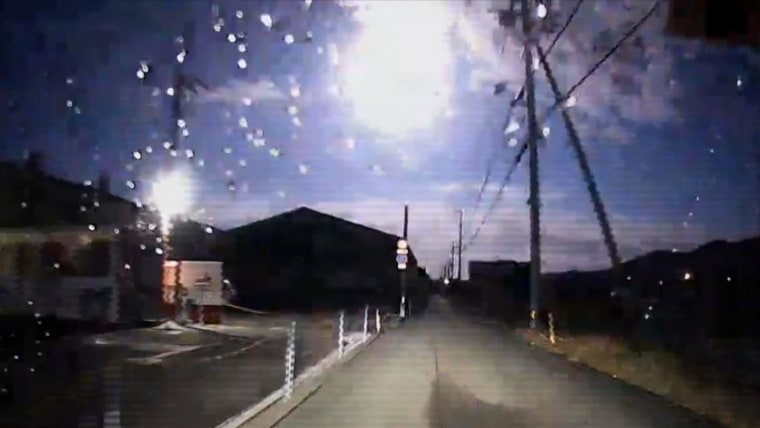Quadrantid meteor shower 2021: Here’s how to watch
The Quadrantid meteor shower, which is one of the strongest spectacles in the sky but can be difficult to see at times, is set to peak Saturday night, marking the first meteor shower of 2021.
The annual meteor shower is known for its “bright fireball meteors” and is “considered to be one of the best annual meteor showers,” according to NASA.
This year, a bright waning gibbous moon may make it harder to spot the meteors, which usually illuminate a dark night sky, according to EarthSky. However, it’s still worth gazing to the heavens for a glimpse of the annual light show.
Here’s what to know about the 2021 Quadrantid meteor shower:
What causes the Quadrantid meteor shower
The Quadrantids aren’t an ordinary meteor shower. While most meteor showers are caused by when tiny bits of debris from a comet burn up upon entering Earth’s atmosphere, the Quadrantids are believed to be caused by debris from an asteroid or possible “rock comet,” according to NASA.
Every year, those debris trails come into contact with Earth’s atmosphere, where they burn up and create colorful spectacles in the night sky.
When to watch
The International Meteor Organization forecasts the peak will be on January 3 at 14:30 pm UTC, which means people in North America have their best chance of seeing the shower during the predawn hours of January 3rd.
While some meteor showers peak for days, the Quadrantids have a window of just a few hours and have been known to not always show up right on schedule.
How to observe the Quadrantids
The Quadrantids favor those in the Northern Hemisphere. The American Meteor Society recommends people “face the northeast quadrant of the sky and center your view about half-way up in the sky.”
“By facing this direction you be able to see meteors shoot out of the radiant in all directions. This will make it easy to differentiate between the Quadrantids and random meteors from other sources,” the group explained in a blog post.
What to expect from the first meteor shower of 2021
This year’s show might not be as flashy as past years due to the moonlight, however there could be as many as 100 meteors whizzing through the sky every hour during its peak, according to AccuWeather. However, the outlet reported it’s more likely people will see just a quarter of the action.
Next year’s shower is expected to be even better. The American Meteor Society said the 2022 Quadrandtids are forecasted to peak on January 3rd at 21:00 UT with no moon present. That timing will favor an audience of sky gazers in Asia.
Read More:Quadrantid meteor shower 2021: Here’s how to watch

